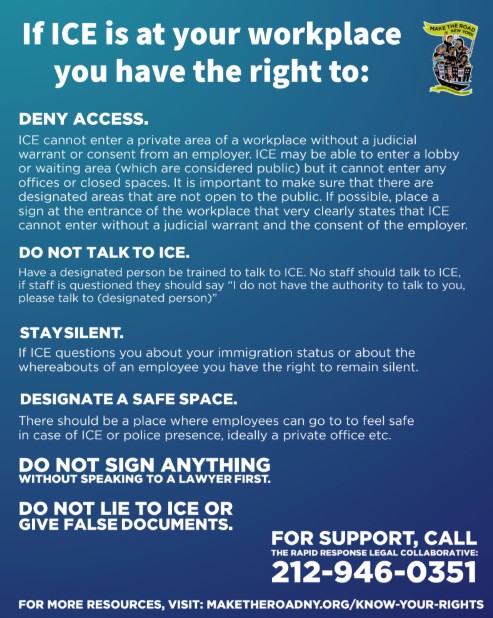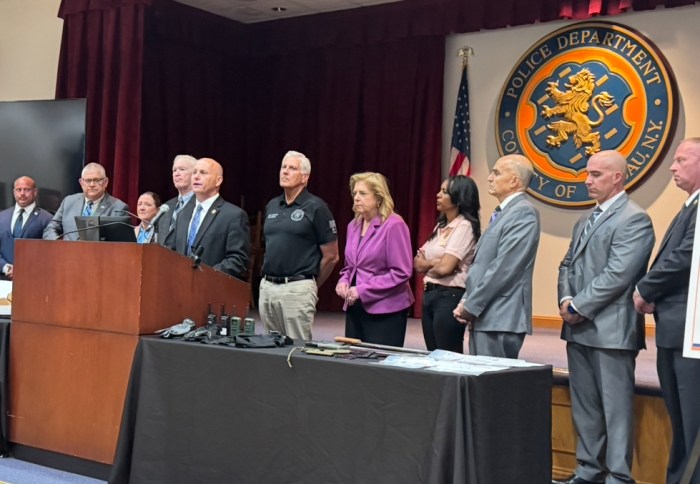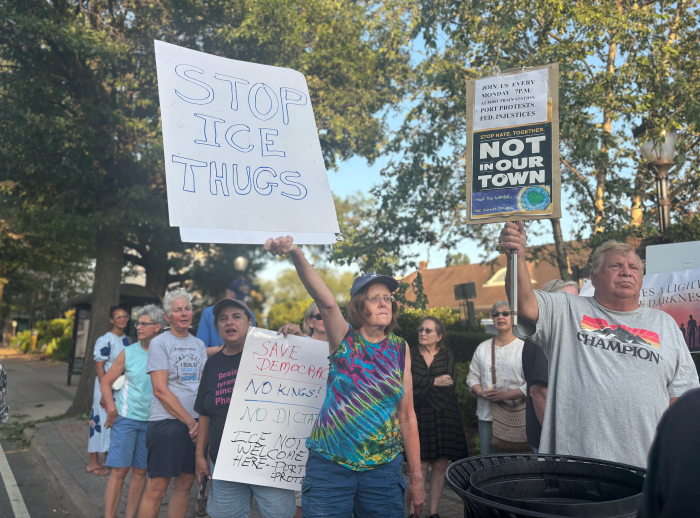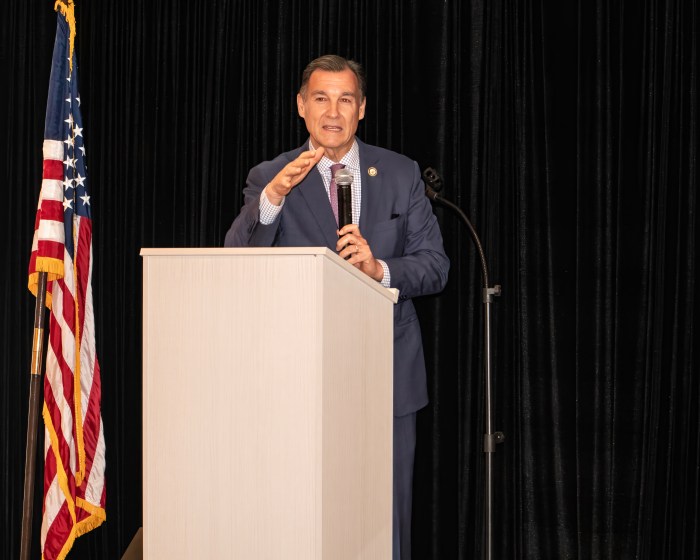Do you look Latino, speak Spanish or appear to work at a low-wage job?
If so, you are now subject to detention by immigration agents following a 6-3 ruling by the Supreme Court. The ruling, made without a full hearing under what is known as a shadow docket, overturned a decision by a federal judge appointed by President Joe Biden in Los Angeles who restricted immigration agents from conducting stops without “reasonable suspicion.”
This ruling applies to Nassau County and everywhere else in the country.
Supreme Court Justice Brett Kavanaugh argued in a concurrence that apparent ethnicity alone cannot provide reasonable suspicion, but it can be a “relevant factor when considered along with other relevant factors” such as employment type (like landscaping, agriculture, car washes), gathering in day-labor pickup areas, or limited English proficiency.
Kavanaugh said this would be nothing more than an inconvenience for American citizens or foreign citizens here legally.
Justice Sonia Sotomayor, who was joined in dissent by liberal justices Elena Kagan and Ketanji Brown Jackson, strongly disagreed. She blasted her conservative colleagues, accusing them of dangerously stripping away Americans’ constitutional freedoms by green-lighting racial-profiling raids.
“Countless people in the Los Angeles area have been grabbed, thrown to the ground, and handcuffed simply because of their looks, their accents, and the fact they make a living by doing manual labor,” she wrote. She added that in many cases this does not result just in “brief stops for questioning” but can have much more serious consequences.
The facts support Sotomayor and the two liberal justices.
The Transactional Records Access Clearinghouse at Syracuse University reports that 41,822 out of 59,380 people —or 70.4%—held in ICE detention have no criminal conviction according to data current as of Aug. 10, 2025. Many of those convicted committed only minor offenses, including traffic violations.
More than 1,600 people with prior convictions have been arrested by U.S. Immigration and Customs Enforcement agents across Long Island since President Donald Trump took office on Jan. 20
It is unknown how many more without criminal records have been arrested, so we are left with anecdotal evidence.
This includes Port Washington bagel store manager Fernando Mejia, of El Salvador, and Suffolk County Community College honor student Sara Lizeth Lopez Garcia, who was deported back to Colombia with her mother.
A 23-year-old electrician who was born, raised, and still lives in Brentwood, MEJIA was a passenger in a car on his way to a job site when six unmarked vehicles stopped him on Union Avenue in Westbury.
Elzon Lemus said an ICE agent approached the car and repeatedly asked him for his ID. Lemus said the officers said he looked like somebody they were looking for and when he asked for their name and badge number, they did not provide that information.
Lemus said he was in handcuffs for approximately 20 to 25 minutes, and that he and the other person in the car were not allowed to leave the scene for at least an hour.
His attorney, Frederick Brewington, said ICE has been racially profiling people and that this was a clear instance of that.
Nassau County Executive Bruce Blakeman said he supported the arrest of the 1,600 people with prior convictions. “That’s 1,600 criminals removed from our neighborhoods. I couldn’t be more delighted,” he said.
He has also declared that Nassau is not a sanctuary county, that local law enforcement will cooperate with ICE, check immigration status in some situations, and assist in detaining undocumented immigrants suspected of criminal activity
But he said he was unable to say how many of those arrested who only committed a civil offense and not a criminal one were being held in the Nassau County jail because ICE does not share that information with the county.
Violating immigration law, such as overstaying a visa, is a civil offense, not a criminal offense.
Nassau County has a partnership with the Department of Homeland Security, which permits immigration detainees to be held for up to 72 hours in one of 50 designated cells at the county’s East Meadow jail.
The county has also agreed to deputize 10 detectives to assist in immigration enforcement.
Law enforcement will also be able to legally wear masks when conducting raids after Blakeman signed an executive order exempting them from the county’s mask ban.
We can expect the number of immigration raids to increase significantly in the coming months following the Supreme Court ruling, the large increase in funding to ICE in the so-called Big Beautiful Budget Bill recently passed by Congress, and Stephen Miller, deputy chief of staff for policy in the Trump administration, setting a 3,000-person-a-day quota for the arrest of immigrants.
The path forward is clear.
Nassau County residents who are American citizens or have legal status but look Latino, speak Spanish, or appear to work a low-wage job should be prepared for possible stops by always carrying papers identifying their status, including passports or other documents identifying them as legally here.
Immigration attorney Michael Mandel recently advised members of the Port Washington Chamber of Commerce in August, before the Supreme Court’s recent ruling, that businesses should be proactive in planning for potential encounters with the U.S. Immigration and Customs Enforcement, stressing that preparation is key to protecting both employees and customers.
Mandel recommended a four-step response plan:
- Ask ICE agents for names, badge numbers, and their agency.
- Ask why the agents are there and instruct them to wait in a public area and state clearly that private areas are off limits without a judicial warrant.
- Decline to answer questions, noting the employee is not authorized to speak for the employer and that she will call the boss.
- Immediately notify the owner, manager, or attorney, and keep contacting people until you reach someone who can intervene.
“If ICE shows up, everyone should stay calm. No one should run from ICE, lie, or provide false documents. Again, no one has to answer any questions. Instead, they can say ‘I choose to remain silent,’” he said.
Many people may find this objectionable, but given the facts on the ground, it can make the best of a bad situation.































